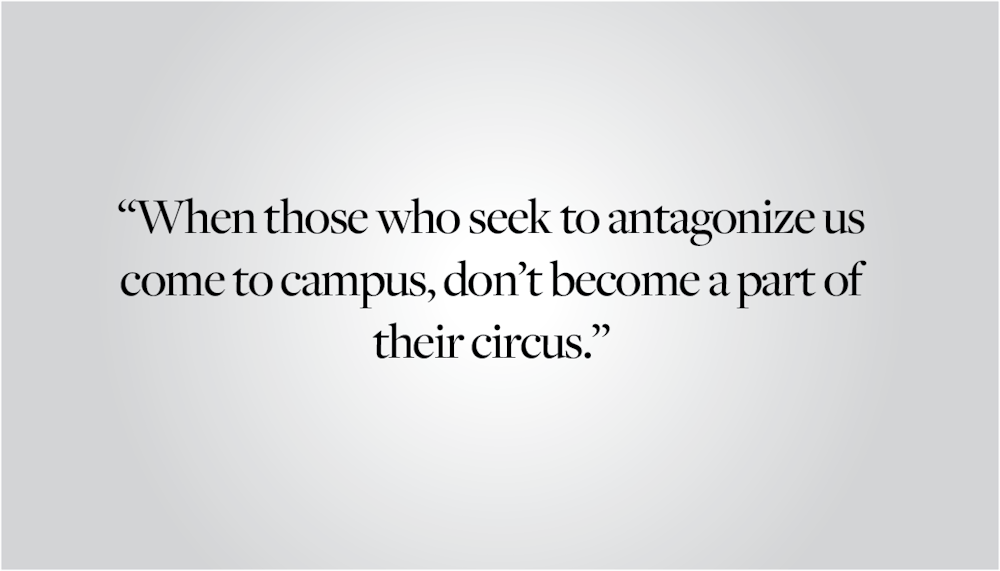It was an ordinary Thursday morning. I had just arrived at my computer science section and was gearing up for two hours of coding. Then I heard bagpipes. A group of men dressed in red robes had blockaded Faunce Arch and were chanting anti-abortion slogans. They were part of a Christian right-wing group called Tradition, Family, Property. It was a circus: a collection of full-grown men dressed as Medieval lords holding up a 10-foot-tall heraldic standard. In response, Brown students mounted a counterprotest to support abortion rights. Although I applaud these student protesters, their reaction is exactly what TFP wanted. So, what should we do instead of engaging with those who seek only to agitate us? The answer is simple: Ignore them entirely.
Although student activism often does serve a positive role in creating change on campus, it is not worth dignifying bad-faith instigators. Just like TFP, all demonstrations have an intended audience. Although they gathered outside our campus, Brown students were merely stage props to help generate publicity. These sorts of protests are entirely self-serving. Unlike protests made in good faith, their purpose wasn’t to convince people of their beliefs, but to fuel what some have referred to as a “persecution complex” As insipid as some claims of persecution are, they are strikingly effective and increasingly common.
The idea peddled by these groups — evangelicals in the case of the joint anti-abortion rally/bagpipe concert — is that they are under attack by a society hostile to their beliefs. What better place to “confirm” this delusion than one of the most liberal college campuses in the Ivy League? In the end, all a counterprotest achieves is further confirming their sense of victimhood.
Other right-wing groups and media outlets have certainly tried this tactic before, taking students’ quotes out of context and using Brown as a punching bag representative of the cultural left. When we talk to right-wing protestors or news outlets, we should never assume that what we say will be included in its full context. Instead, we should assume that these provocateurs will choose to interpret our words in whatever way that makes Brown students seem foolish and makes them look best — or most victimized.
Imagine if no one agreed to be interviewed when right-wing media came to campus. Imagine if people simply walked by protestors. What would these organizations have then? An Instagram reel titled “College students walk to class and ignore us?”
When I say to not engage with those operating in bad faith, I’m not saying to shut yourself off to outside ideas. Refusing to hear new opinions defeats the purpose of college as a place where ideas flourish. Nor am I saying we should forsake Brown’s impressive legacy of student activism. But goading for the sake of a soundbite is reductive at best and harmful at worst. What I’m saying is this: When those who seek to antagonize us come to campus, don’t become a part of their circus.





